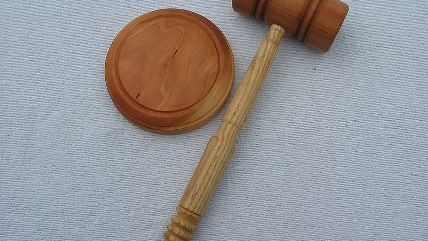Court Secretly Loosens Surveillance Rules and Expands NSA Power


I have, oh-so-cynically, referred to the court set up under the Foreign Intelligence Surveillance Act as a "phony baloney" court that grants rubber-stamp approval to virtually every snooping request that comes its way. Of course, I base that subjective assessment on the fact that, in 11 years, the court has denied only 10 applications, and modified a few dozen, and approved more than 15,000. The president says if people share my jaded take on such judicial review, then "we're going to have some problems here." But, as noted at Reason 24/7, we already have a problem, in that this rubber-stamp body is secretly transforming the laws governing surveillance, and enormously expanding the powers available to the National Security Agency,
From the New York Times:
WASHINGTON — In more than a dozen classified rulings, the nation's surveillance court has created a secret body of law giving the National Security Agency the power to amass vast collections of data on Americans while pursuing not only terrorism suspects, but also people possibly involved in nuclear proliferation, espionage and cyberattacks, officials say.
The rulings, some nearly 100 pages long, reveal that the court has taken on a much more expansive role by regularly assessing broad constitutional questions and establishing important judicial precedents, with almost no public scrutiny, according to current and former officials familiar with the court's classified decisions.
The 11-member Foreign Intelligence Surveillance Court, known as the FISA court, was once mostly focused on approving case-by-case wiretapping orders. But since major changes in legislation and greater judicial oversight of intelligence operations were instituted six years ago, it has quietly become almost a parallel Supreme Court, serving as the ultimate arbiter on surveillance issues and delivering opinions that will most likely shape intelligence practices for years to come, the officials said. …
In one of the court's most important decisions, the judges have expanded the use in terrorism cases of a legal principle known as the "special needs" doctrine and carved out an exception to the Fourth Amendment's requirement of a warrant for searches and seizures, the officials said.
I'm trying to imagine some interpretation of this court's activities that's not problematic, but it's not coming. If we're going to grant government agencies new authority to conduct domestic surveillance with little requirement for authorization or oversight — and I don't think we should under any circumstances — then that should be done after some sort of public debate so that people are at least aware of what's occurring. That the reinterpretation and loosening of constitutional restrictions goes on behind behind closed doors, and that the surveillance authorized by this court is then subject to gag orders so that those compelled to disclose information under loosened standards can't reveal the fact, is every bit as horrifying to me as the mass collection of personal data itself.


Show Comments (84)